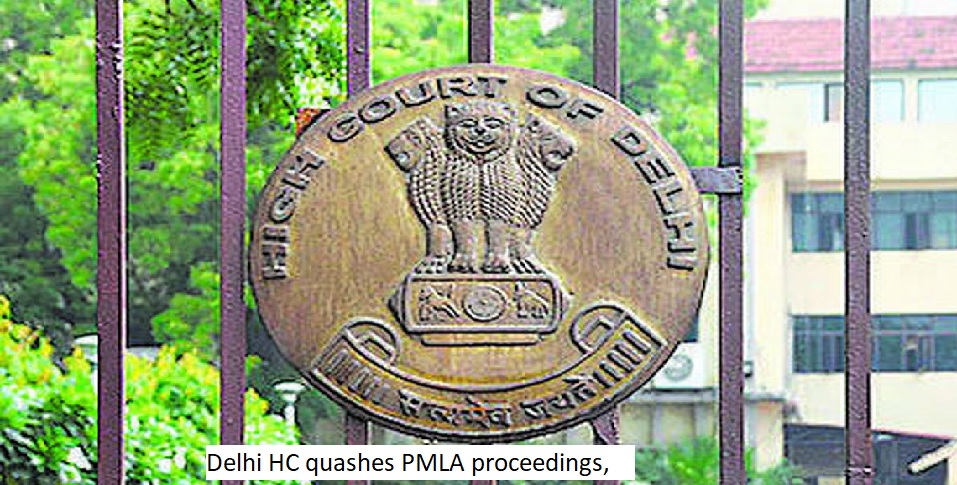


The Delhi High Court has invalidated proceedings under the Prevention of Money Laundering Act (PMLA) initiated by the Enforcement Directorate (ED) against an accused individual. This action was based on two First Information Reports (FIRs) filed against the individual, which were subsequently quashed and settled between the involved parties.
Justice Amit Sharma asserted that once an FIR has been quashed, a scheduled offence cannot persist. Consequently, in the absence of a scheduled offence, any allegations of money laundering related to the same do not stand. The court concluded, "Accordingly, the proceedings undertaken with respect to the said two FIRs qua the present petitioner in the present ECIR stand quashed."
The case arose from a petition filed by Rajinder Singh Chadha, who sought the quashing of all actions and proceedings stemming from the ECIR registered by the ED in 2019. The two FIRs, dismissed by the court, were initially lodged by the Economics Offences Wing (EOW). These FIRs claimed that, despite monetary transactions in 2006-07, the complainants did not receive the promised flats from the accused company, M/s Uppal Chadha Hi-Tech. Moreover, Chadha, as the Director of the said company, was alleged to have diverted funds collected from the complainants.
However, the court declined to quash a third FIR registered by the EOW later that year. This third FIR was based on the premise that "there is no dispute with regard to the fact that the third FIR, i.e., FIR No. 55/2023, also relates to the same." The court clarified that while the third FIR related to a scheduled offence concerning the complainant, for the purposes of PMLA investigation, it formed part of the same ECIR that focused on the proceeds of crime under the PMLA in the previous FIRs.
"In the present case, 'scheduled offences' by way of the third FIR still exist," the court noted. It highlighted that even in an FIR being investigated by local police with multiple complainants, compounding with some of them would not be grounds for quashing the entire FIR. However, the court acknowledged that partial compounding/quashing is permissible.
The legal representation for the petitioner included Mr. Sandeep Sethi, a Senior Advocate, along with a team of advocates. On the respondents' side, Mr. Amit Tiwari served as Senior Panel Counsel for the Union of India, and Mr. Zoheb Hossain acted as Special Counsel for the Directorate of Enforcement.
In essence, the court's decision hinged on the principle that the quashing of FIRs renders the associated scheduled offences non-existent, consequently impacting any parallel PMLA proceedings. While the court dismissed two FIRs, it maintained the validity of a third, emphasizing the persistence of scheduled offences in the latter. This nuanced ruling underscores the legal intricacies involved in cases where FIRs are quashed and the implications for subsequent proceedings under special statutes like the PMLA.
TAGS: Delhi High Court PMLA proceedings Enforcement Directorate FIR quashing scheduled offence Rajinder Singh Chadha